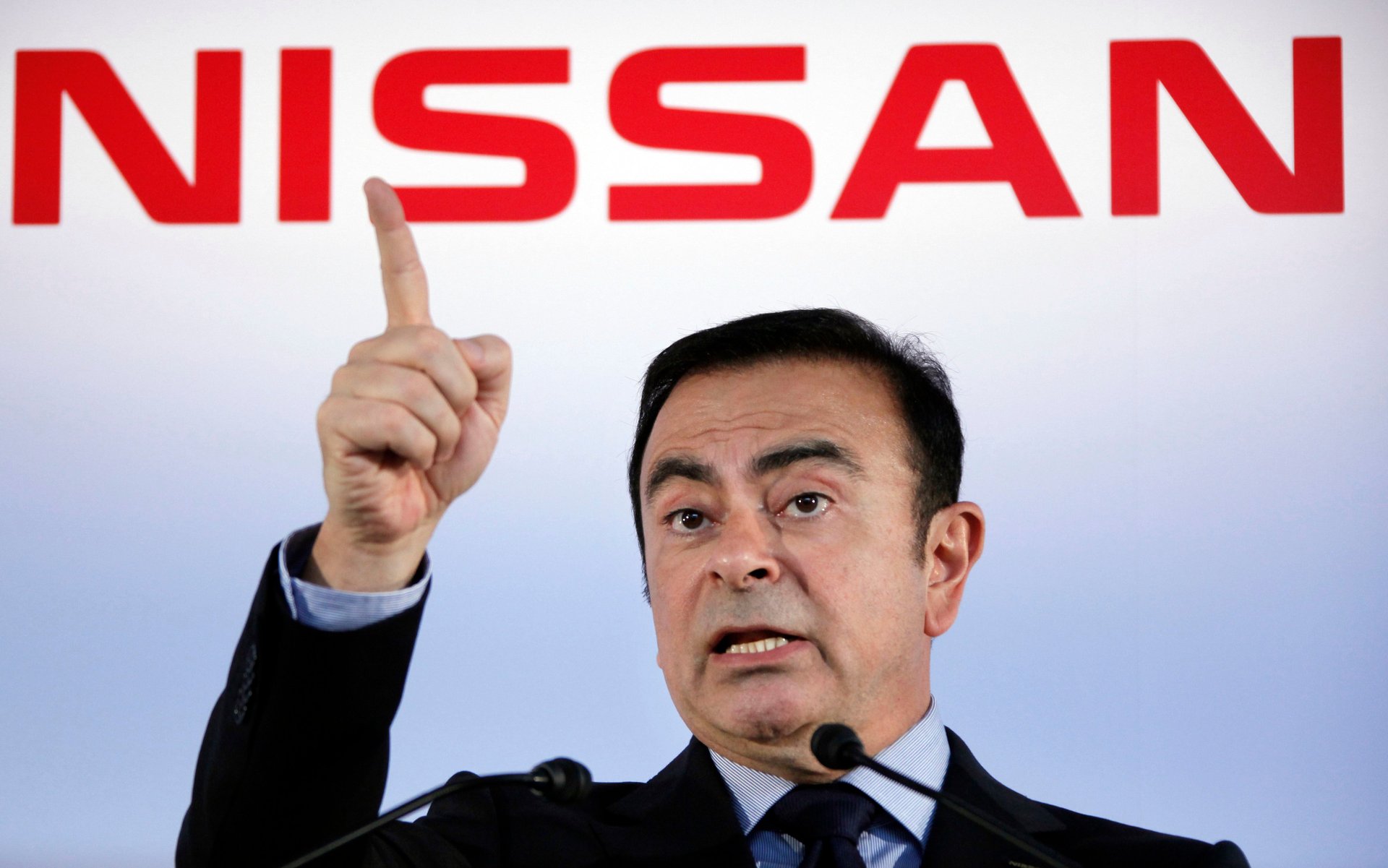Carlos Ghosn is up against Japan’s 99.9% conviction rate
Japanese prosecutors indicted Nissan’s ousted chairman Carlos Ghosn today (Dec. 10) for financial misconduct, claiming he had underreported his pay by nearly 5 billion yen ($44 million) from 2011 to 2015. If found guilty, he could face up to 10 years in prison. Nissan and an executive, Greg Kelly, were also indicted for their roles in the scandal.


Japanese prosecutors indicted Nissan’s ousted chairman Carlos Ghosn today (Dec. 10) for financial misconduct, claiming he had underreported his pay by nearly 5 billion yen ($44 million) from 2011 to 2015. If found guilty, he could face up to 10 years in prison. Nissan and an executive, Greg Kelly, were also indicted for their roles in the scandal.
Even before Ghosn’s case goes to trial—possibly in the next 40 to 50 days (paywall)—it’s extremely likely it’ll end in a conviction. Since Ghosn’s arrest in Tokyo on Nov. 19, Japan’s judicial system has drawn worldwide scrutiny for its 99.9% conviction rate (paywall). Such a high figure suggests slim odds of an acquittal for Ghosn and a system that’s stacked against him.
Up until his arrest, Carlos Ghosn was one of the most powerful people in the auto industry, having forged an alliance between Renault and Nissan nearly two decades ago. The alliance, which in 2016 added Mitsubishi into the fold, is the largest in the industry and accounts for one in nine cars that are produced globally. Nissan and Mitsubishi have removed Ghosn as their chairman, but he remains chairman of the alliance and has been replaced on an interim basis as CEO and chairman at Renault.
Japan’s judicial system is known to be secretive and ruthless, relying heavily on confessions to get to its nearly perfect conviction rate. It was only in 2016 that the Diet, in response to a 2009 scandal in which prosecutors tampered with evidence, passed an amendment requiring some interrogations to be videotaped to prevent forced confessions.
“The problem of the police and prosecutors wrongfully convicting someone is so well known that Japan has a word for it,” Jake Adelstein, an investigative journalist and a former court reporter in Japan, told Quartz in 2016. Enzai can mean “a crime that one did not commit” or “being framed for a crime.”
The issue is rooted in prosecutors’ expansive powers, suspects’ lack of rights once they’re entangled in the Japanese judicial system, and judges’ hesitation to issue anything but a guilty verdict. While Japanese criminal law says the accused are innocent until proven guilty, the reality is that the burden rests on them to prove their innocence (paywall).
Suspects can be held for 23 days without charge, and their detention can be repeatedly extended if prosecutors file new accusations. The founder of the Mt. Gox bitcoin exchange, Mark Karpeles, for example, was arrested repeatedly so Japanese police could try to extract a confession. Up until today, Ghosn was held without charge. Prosecutors were already given two extensions to detain Ghosn, but today was the last day he could’ve been held unless he was charged or arrested on new grounds.
Since suspects aren’t usually allowed to have their lawyers present during interrogation, it’s unlikely Ghosn had legal counsel during questioning. “That’s from the Western standpoint a clear violation of due process. It’s unfair,” Lawrence Repeta, a former law professor at Tokyo’s Meiji University, told Japan’s Nikkei newspaper (paywall).
Until Ghosn was charged, he couldn’t be granted bail (paywall). But now that he is charged, it’s possible he won’t be granted it (paywall) anyway since Japanese law allows courts to keep suspects in custody, with prosecutors claiming they could destroy evidence.
One of the arguments that try to explain Japan’s incredibly high conviction rate is that Japanese prosecutors will only move to indict if they feel they have a rock-solid case. But many aren’t so convinced.
Nobuo Gohara, a lawyer and former prosecutor, told France 24 “few judges are willing to deliver an innocent verdict,” which has led to cases of false convictions.
“The extraordinarily high conviction rate indicates that in Japan, whether a suspect is guilty or not is almost solely decided by prosecutors,” she said. “Even if the prosecutors wrongly indict a suspect, it is extremely difficult to reverse that decision in court.”